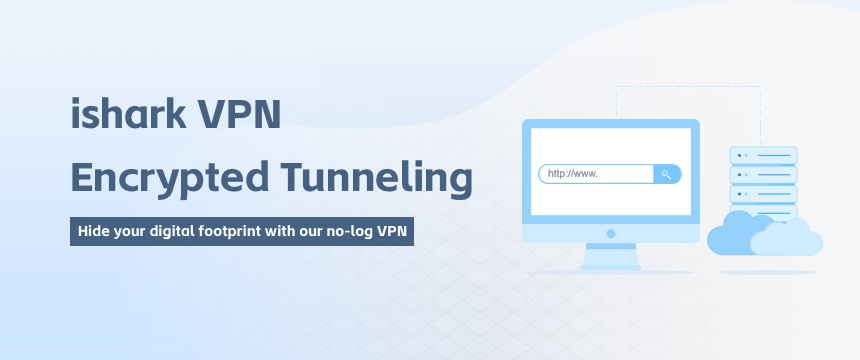Addressing Queries: Comprehensive Guide to Common Questions and Concerns
ishark blog article
Using a Virtual Private Network (VPN) is a common practice for protecting online privacy and data security, but users may have various questions and concerns. This article will list common VPN-related questions and user concerns, providing detailed answers and solutions. We will explore how to overcome technical issues, optimize VPN connections, and offer best practices and usage recommendations for specific concerns.
Part 1: Common Questions and Concerns Answered
1、What is a VPN, and how does it protect my privacy?
A VPN is a service that creates a secure connection on a public network through encryption and tunneling technology. It can hide your real IP address, encrypt data traffic, and make your online activities private and secure.
2、Is VPN legal, and is it safe to use?
Using a VPN is generally legal in most countries. However, some countries may have restrictions on VPN usage. Using a VPN itself is relatively safe, but choosing a reputable VPN service provider that does not log user data is crucial.
3、How do I choose the right VPN service provider?
Consider the following factors when selecting a VPN service provider:
Security and Privacy Policy: Choose a provider that offers encryption and privacy protection features and ensures they do not log user data.
Server Locations and Coverage: Select a provider that offers servers in locations and with coverage that meet your needs.
Speed and Performance: Choose a provider that offers fast and stable connections. User Experience and Customer Support: Review user ratings and experiences to gauge the quality of customer support.
1、Will VPN affect my internet speed?
VPN connections may have some impact on internet speed as they involve additional encryption and data transmission. However, excellent VPN service providers typically offer fast servers and optimized network infrastructure to minimize speed loss.
2、How do I configure a VPN connection on a mobile device?
The specific steps for configuring a VPN connection may vary depending on the device and operating system.
Generally, you can find the VPN option in your device settings and follow the guidelines provided by the provider. Additionally, most VPN service providers offer mobile applications that simplify the configuration process.
3、My VPN connection is unstable. How can I resolve it?
Resolving unstable VPN connections may involve considering the following:
Choose servers closer to your geographic location to reduce latency and increase stability. Try different VPN protocols, such as OpenVPN or WireGuard, to determine which one works best in your network environment.
Disable firewalls or security software on your device that may interfere with the VPN connection.
Update your VPN client to the latest version to ensure you have the latest features and fixes.
Part 2: Solutions and Best Practices
Protecting Privacy:
Use a VPN service with robust encryption, such as 256-bit AES encryption. Avoid using free VPN services as they may collect and sell your personal data.
Choose a VPN service provider that does not log user activity to maximize privacy protection.
Optimizing Speed:
Select servers closer to your geographic location to reduce latency. Try using the UDP protocol instead of TCP, as UDP generally offers faster transmission speeds.
Disable unnecessary features in the VPN client, such as ad-blocking or malware blocking.
Mobile Device Configuration:
Use the official application provided by the VPN provider and follow their guidelines for configuration.
If manually configuring a VPN connection, ensure you enter the correct configuration parameters and follow the provider's instructions.
Enable the VPN auto-connect feature on your mobile device to ensure VPN protection is automatically enabled when connecting to untrusted Wi-Fi networks.
Part 3: Overcoming Technical Issues and Optimizing Connections
DNS Leak Issues:
Configure the VPN client to use the DNS servers provided by the VPN provider to prevent DNS leaks. Use DNS leak detection tools to identify and resolve DNS leak issues.
Firewalls and Blocks:
Utilize the firewall bypass feature provided by the VPNprovider to overcome potential firewall blocks in certain network environments. Try switching to different server locations to bypass blocks.
NAT Firewall:
Enable NAT traversal functionality in the VPN client to address any impact of NAT firewalls on the VPN connection. If possible, switch VPN protocols or ports to avoid being blocked by NAT firewalls.
IPv6 Compatibility:
Disable IPv6 on your devices to avoid potential IPv6 compatibility issues when connecting with a VPN. Choose a VPN service provider that supports IPv6 to ensure compatibility and connection stability.
Part 4: Tips and Best Practices
Keep Software Updated:
Regularly check for updates to your VPN client and operating system, and always use the latest software version to access the latest features and security fixes.
Multi-Factor Authentication:
Enable multi-factor authentication offered by your VPN service provider to enhance account security.
Avoid Account Sharing:
Avoid sharing your VPN account with others to ensure security and privacy. Each user should have their own independent account.
Conclusion:
This article has provided detailed answers and solutions to address common VPN questions and user concerns.
It covers the basics of VPN concepts and workings, legality and safety concerns, considerations for choosing service providers, optimizing connection speeds, and resolving technical issues.
Additionally, it offers usage recommendations and best practices to help users protect their privacy and enhance their VPN experience.
